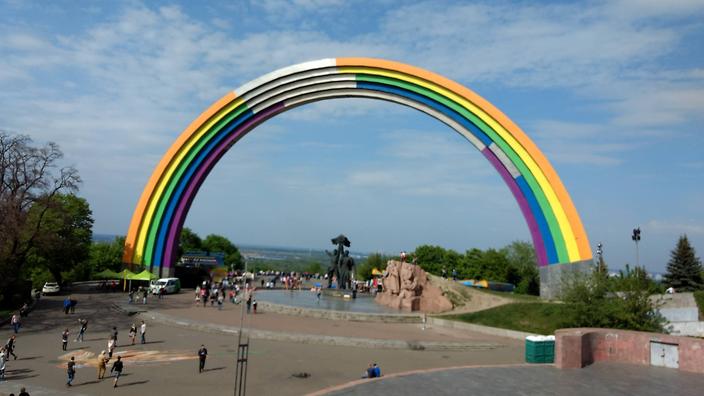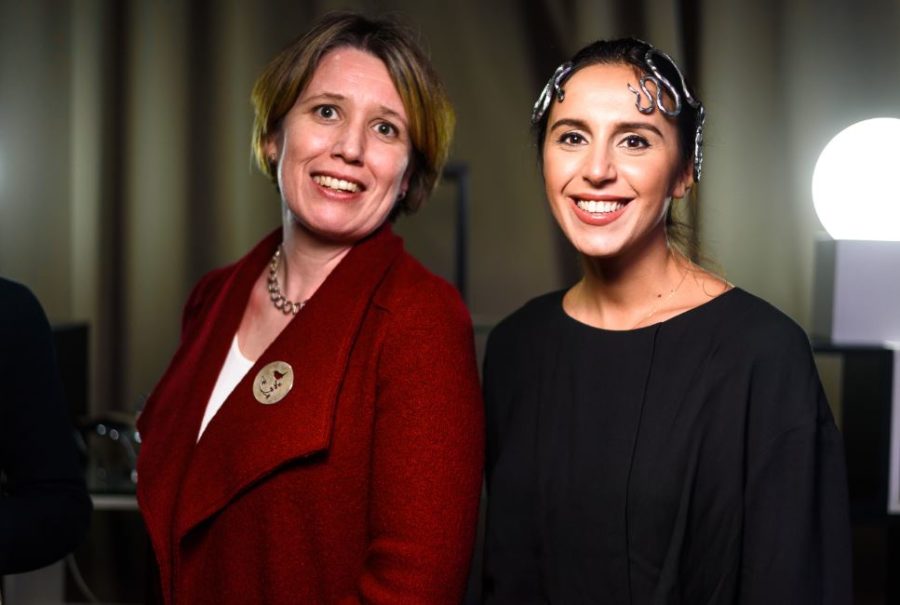8th May 2017 Stockholm, Sweden
Will this year’s Eurovision in Ukraine spread “a little peace”?

“Yeeeeesssss”! That was my ecstatic 1:30am tweet on seeing Ukrainian entry Jamala win Eurovision 2016. Not only was I delighted for Jamala, but also Ukraine. After 3 years of conflict and crisis, Eurovision now offered Ukraine the opportunity to show another face to a global audience of more than 200 million viewers. For many, Eurovision is a wonderful campfest, where the spectacle can be as important as the singing. (Confession: I am a genuine fan.) But in this part of the world, it’s a serious business, as became all too clear to me over the following few hours. My tweet elicited some of the worst trolling that I have ever received, from Twitter users who felt that Russia had been robbed. It was hard not to feel some sympathy. The Russian entry Sergey Lazarev was brilliant and widely expected to win. He came close to doing so, alongside Australia who had somehow joined the party. But an impassioned performance by the immensely talented Jamala saw her claim victory.

Since last year’s competition, we have been working closely with our Ukrainian hosts to help make the event a success. Whilst Ukraine continues to generate headlines that focus on crisis, conflict and corruption, there is a more positive story to tell of a vibrant new generation trying to shed the shackles of the past and create a modern, democratic European state. But Ukraine often struggles to convey a balanced picture in the face of a negative Russian narrative that likes to portray the current Government as fascist and the country as failing. (Neither true). The recent issue over Russia’s proposed entrant to this year’s competition (banned by Ukraine for illegal entry to Crimea), shows how tricky a simple song contest can become.
This makes the task of holding Eurovision 2017 far more challenging. Eurovision organisers expect some 20,000 fans to travel to Kyiv and that the largest contingent will be British. With a strong UK LGBT following and a mixed picture in Ukraine when it comes to LGBT rights and tolerance, we have been working hard to ensure that the event passes off smoothly.
So, what have we done? Well, we have partnered closely with the British Council to deliver a joint approach, drawing up a public diplomacy as well as consular and security strategies, staying in close contact with the relevant authorities. Our first port of call was to see the Mayor of Kyiv, Vitaliy Klytschko, who, whilst heavily involved in his brother’s recent fight against Antony Joshua, is also keen to make a success of this event. As a result, we have drawn on London 2012 experience to support a programme for Eurovision volunteers and trained the local police in English to help assist tourists. We have worked closely with the BBC and also invited a group of British LGBT journalists to Kyiv to help debunk some of the myths about Ukraine and advise on how people can safely enjoy Eurovision week.
Check out some of the reports
OGAE,
I was thrilled to make my first – and possibly last – ever appearance on Gaydio. Whilst a small minority of Ukrainians are homophobic, most in my experience are not. Nonetheless, many are uncomfortable in engaging with issues that remain difficult to discuss.
But the signs are that Ukraine is slowly and cautiously opening up and increasingly embracing European values of tolerance and openness. The theme for this year’s Eurovision Song Contest is “Celebrate Diversity” and residents of Kyiv (including me) were surprised to see Kyiv’s iconic 50m Friendship of Nations Arch turned from Soviet titanium to a mighty vibrant rainbow – and renamed the “Arch of Diversity”. The fact that the arch was dedicated in 1982 to the unification of Ukraine and Russia within the Soviet Union is not lost on Kyiv’s locals. The rainbow has been left incomplete, some say to demonstrate Ukraine’s “continuous and relentless efforts to break away from its Soviet and Russian legacy, to seek new meanings and pave its own path as an independent European State.” Others say, because far right elements sabotaged the rainbow’s completion. Whatever the case, the new “Arch of Diversity”, complete or not, is a powerful symbol of the change underway in this country.
And so… my embassy team is prepared and our sequins have been shined in readiness for Eurovision 2017 (9-13 May). We are expecting the unexpected, along with the glamorous, the talented and the just plain weird. Hopefully, all will go well and visitors to Kyiv will enjoy the world’s largest, most enjoyable, diverse and entertaining song contest. We are excited to welcome the wonderful UK entrant Lucie Jones to Kyiv, and will be cheering her along, but naturally wish all contestants the very best of luck.
To find out how we fare and get the inside track, follow us on Twitter @UKinUkraine and @JudithGoughFCO. Whatever, happens, it won’t be dull!
Ukraine needs to strenghten on its parliamentary democracy and rule of law. I recall that occusionally conflicts erupts during sessions of Parliament where members even exchange blows.